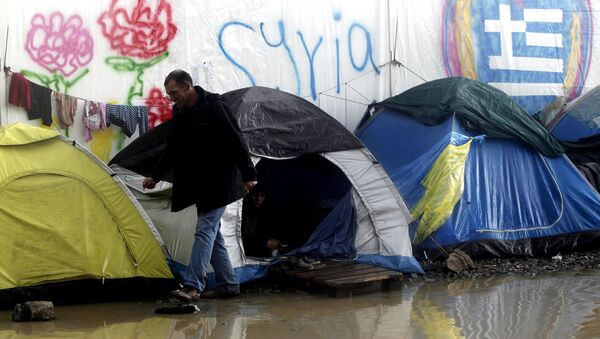The EU Commissioner for Humanitarian Aid and Crisis Management Christos Stylianides said that serious allegations of sexual exploitation and fraud were under investigation in respect of one of its partner agencies on a humanitarian project in Greece.
"We have identified potentially serious allegations related to one of the humanitarian projects being implemented by a partner in Greece. An allegation relates to a case of potential sexual exploitation of beneficiaries by the partner's staff members. Another allegation concerns potential financial corruption by these staff members," Stylianides said in a statement.

"Although these remain allegations under investigation, the Commission is taking them very seriously. We take a zero tolerance approach to any abuse of the rights and personal integrity of all refugees and migrants as well as to any misuse of funds. Our primary concern is the welfare of the potential victims. Accordingly, we shall ensure that immediate support is provided to them," he said.
The Commission said it had discovered the allegations because of a "thorough mechanism to monitor and ensure that its humanitarian funding worldwide is implemented in full respect of all humanitarian principles and sound financial management.
"We have already informed the Greek authorities and submitted the case to OLAF, the EU's anti-fraud office for immediate investigation. Steps are being taken to suspend payments to the partner until the investigation is concluded," Stylianides said.
Inhumane Conditions
A year ago, May 2016, the UN Refugee Agency UNHCR said it was "seriously concerned" over what it termed sub-standard conditions at several sites in northern Greece where refugees and migrants were evacuated from the makeshift site at Idomeni.
In January, Amnesty International slammed the EU for its migrant deal with Turkey, aimed at stemming the flow of migrants crossing into Europe, because it was stranding migrants on Greek islands, leading to intolerable conditions.
"This inhumane situation is the direct result of the EU and European government pressure to seal off the Balkan route without fulfilling their relocation commitments. In addition, it results from the EU-Turkey deal which strands asylum seekers on the Greek islands in order that they remain eligible to be sent back to Turkey," said Monica Costa, Amnesty International's Migration Researcher.



